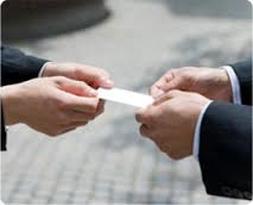
Having an understanding of culture and etiquette is one thing but being able to converse in Japanese is something entirely different.
|
Japan is a country steeped in tradition and culture, and ensuring business etiquette is met in Japan in line with the traditions and culture is often the biggest fear for any person doing business with the Japanese. A great deal of the etiquette is common decency and politeness, but having some knowledge of what should or should not be done in a meeting, goes a very long way toward cultural acceptance. Perhaps the most common of all known elements of Japanese business culture, is the bow. It is common courtesy. Some people would say that it is better not to bow at all than to bow badly, but, the Japanese are very forgiving. If it is your first time doing business in Japan I am sure you will be respected. In communication prior any meeting, it is well worth while indicating this so when you do bow your client or host will understand and respect the fact that you are nonetheless aware of custom and are at least trying to conform. Do not offer a handshake immediately on a first time meeting and rather wait for the handshake to be offered to you, most people will offer one. Another curious point about doing business in Japan is the seating. If your host is seated, do not wait to be asked to sit, it is considered polite to sit with your host. If none of your hosts are seated, do not break the ice and be the first, there is a certain hierarchy that is followed, the host or more senior of your hosts must sit first and then others will follow. Much of the culture around business is common sense. Don’t rush and take your time, and with everything, being conservative is recommended. Don’t be brash, forceful or demanding as this can be disrespectful, and never dress in flash clothes or use expensive pens to make you look good, better or wealthier. Just be yourself. The Japanese are not easily impressed by money and showing off. And a little secret, only ever sign in blue or black ink unless instructed to do so otherwise.  Once you have settled in with your host or client, you will need to make conversation. Many Japanese businessmen speak very good English, but, speaking Japanese, even just a few phrases can make a tremendous impact on the person you are with. Having an understanding of culture and etiquette is one thing but being able to converse in Japanese is something entirely different. The Japanese language may seem a challenging language to learn but in actual fact it is not, English as a second language is by far the most complex and your Japanese counterpart is having to or has had to work a great deal harder to learn English than you have Japanese. Speaking the language creates trust and confidence. Your host will tell you things he or she would not it they were speaking another language with which they struggled, merely because they do not know how, or how to say it correctly. So much can be lost in translation but taking the time to learn the language and just do a little bit of research into doing business in Japan goes a very long way.
1 Comment
|
Archives
June 2024
AboutThese blogs are about learning a foreign language and utilising that skill to forward your professional path. Categories
|